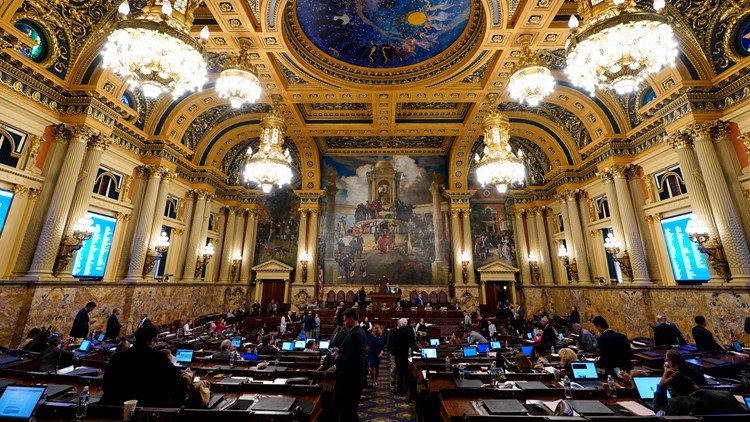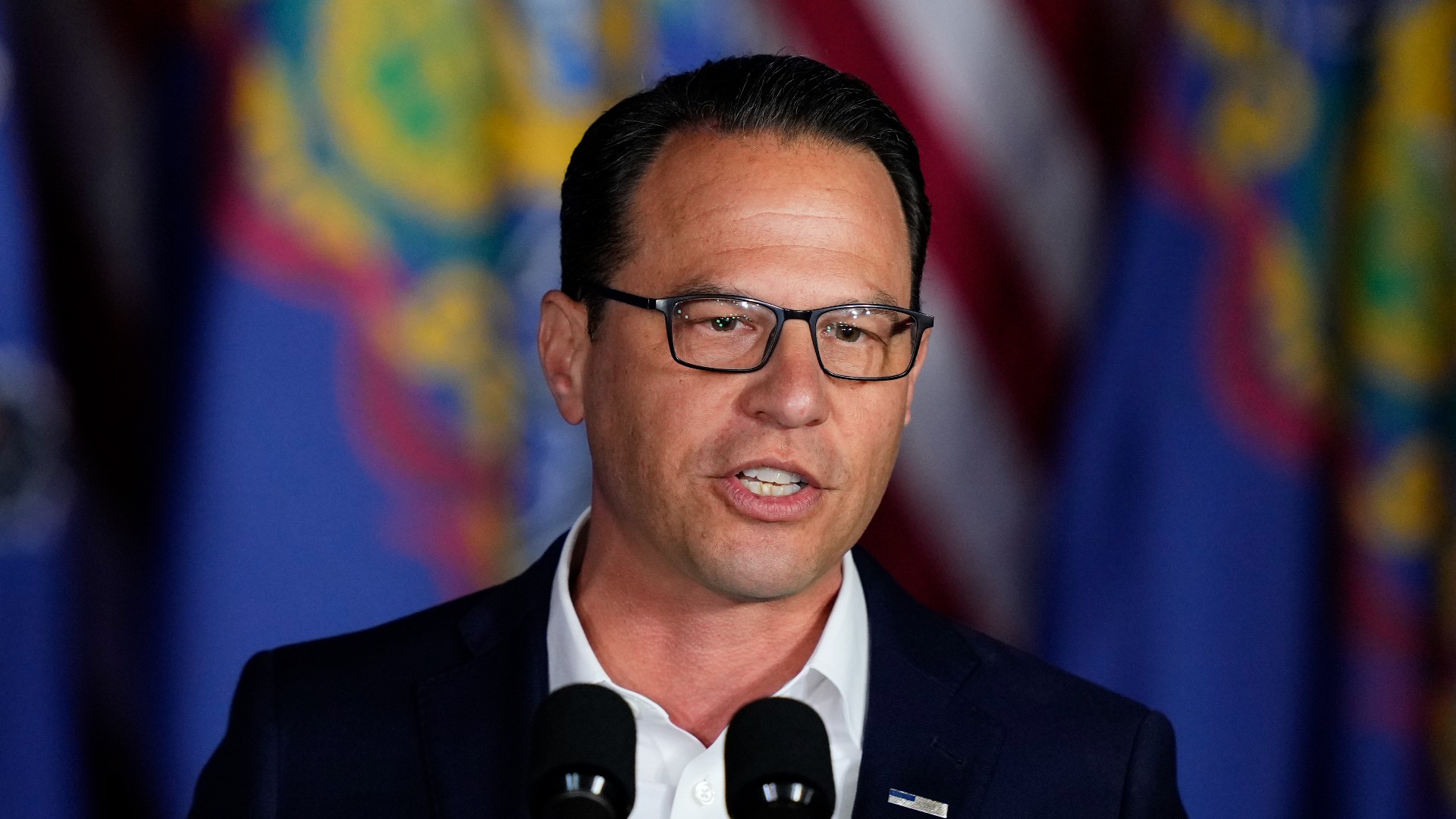HARRISBURG, Pa. — Republicans who control Pennsylvania's Senate passed spending legislation hours ahead of Saturday's start of a new fiscal year, but they lacked agreement with the Democratic-controlled House of Representatives to keep state government's full spending authority intact.
Without new spending authority in place, the state will be legally barred from making some payments, although a stalemate must typically last weeks before an effect on services is felt.
Gov. Josh Shapiro, a Democrat, has stayed out of sight in the Capitol and behind closed doors in his official residence, while House and Senate leaders sent rank-and-file lawmakers home Friday with no certain plans to return.
School spending was the main point of disagreement between the sides.
House and Senate leaders have maintained that they were more interested in negotiating a good budget than simply getting it done by Saturday's start of the 2023-24 fiscal year. In his remarks during floor debate, Senate Majority Leader Joe Pittman, R-Indiana, acknowledged that differences remained with House Democrats.
“Our friends on the other side of the building clearly have a different point of view on where we should be at this moment in this commonwealth,” Pittman said.
The main budget bill in the Senate GOP's $45 billion spending plan passed 29-21, a couple hours after it emerged Friday. Every Republican supported it and all but one Democrat voted against it. Shapiro's administration declined Friday to say whether he supports the Senate GOP plan, saying only that House and Senate leaders should continue to work toward compromise.
The plan is about a 5% increase from the last approved budget, although part of it — about $600 million in aid for Penn State, Temple University and the University of Pittsburgh — is in limbo and being held up by a House Republican bloc.
The total spending figure is several hundred million less than what Shapiro proposed in March and about $1.7 billion less than what the Democratic-controlled House passed in early June.
It also carries significantly less for public schools than what Democrats wanted, but gives substantial increases for private schools.
That includes $100 million to pay for children to attend private and religious schools under a new program backed by Republican lawmakers and Shapiro, but opposed by Democratic lawmakers, and another $150 million for a tax credit program that largely benefits private schools.
Like Shapiro's plan, the Senate GOP plan envisions no increases in income or sales taxes — the state’s two main revenue sources — and most of the new money in it would go to education, health care and social services. To balance, the plan will require about $1 billion from reserves, leaving about $13 billion in reserve.
Republicans called their budget “responsible" in the face of a potential recession.
In addition to opposing the new $100 million private school subsidy, Democratic lawmakers have pushed for far more funding for public schools in light of February's landmark court decision that found Pennsylvania’s system of funding public schools violates the constitutional rights of students in poorer districts.
Shapiro's plan sought another $1 billion for public schools, while House Democrats had sought about $1.7 billion. The Senate Republican plan carries about $800 million.
The state’s massive reserves — built up by inflation-juiced tax collections and federal pandemic subsidies — have eased spending decisions.
But that hasn't meant that everyone is satisfied. A number of groups — home health care agencies, nursing home operators and agencies that deliver home care for the intellectually disabled — continue to seek higher Medicaid reimbursements, while counties have sought more money for the safety-net mental health services they administer.
For Shapiro, getting his first budget across the finish line is perhaps the biggest test yet of his political skills under the Capitol dome.
With Saturday's start of the fiscal year, Shapiro’s signature on a new budget bill was required to maintain full spending authority.
In a budget stalemate, the state is still legally bound to make debt payments, cover Medicaid costs for millions of Pennsylvanians, issue unemployment compensation payments, keep prisons open and ensure state police are on patrol.
All state employees under Shapiro’s jurisdiction will continue to report to work and be paid as scheduled, an administration spokesperson said.
Shapiro’s administration may have to postpone payments to vendors, such as utilities, insurers, suppliers and landlords, and put off paying discretionary items, such as tax credits, grants and some public school aid.
For now, the state’s main bank account is flush with roughly $15 billion and can make its legally required payments, a Treasury Department spokesperson said.



